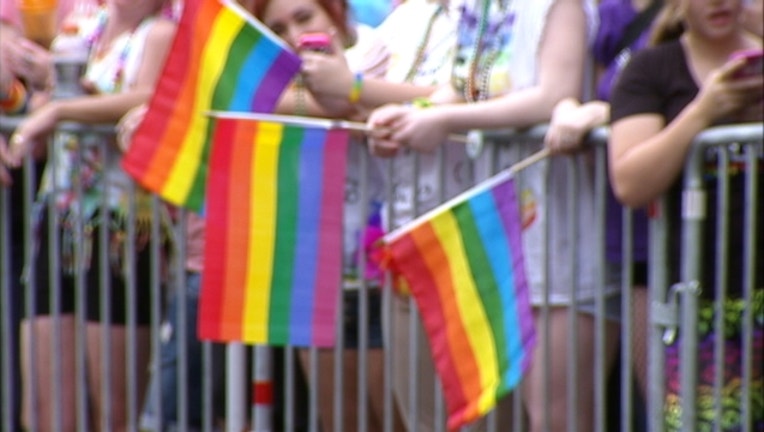Judge blocks Mississippi's 'religious objections' law

JACKSON, Miss. (AP) — A federal judge blocked a Mississippi law on religious objections to same-sex marriage moments before it was set to take effect Friday, ruling it unconstitutionally establishes preferred beliefs and creates unequal treatment for gay people.
U.S. District Judge Carlton Reeves wrote that the title, text and history of the law show it is "the state's attempt to put LGBT citizens back in their place" in response to last summer's Supreme Court ruling that legalized gay marriage nationwide.
"In physics, every action has its equal and opposite reaction," wrote Reeves, who was nominated to the bench by President Barack Obama in 2010. "In politics, every action has its predictable overreaction."
Republican Gov. Phil Bryant said he plans to appeal the ruling, which came overnight in response to two lawsuits filed weeks ago by gay and straight plaintiffs.
The law sought to protect three beliefs: That marriage is only between a man and a woman; that sex should only take place in such a marriage; and that a person's gender is determined at birth and cannot be altered.
It would allow clerks to cite religious objections to recuse themselves from issuing marriage licenses to same-sex couples, and would protect merchants who refuse services to lesbian, gay, bisexual or transgender people. It could affect adoptions and foster care, business practices and school bathroom policies.
"The state has put its thumb on the scale to favor some religious beliefs over others," the judge wrote. Reeves also wrote that it violates the Constitution's equal protection guarantee.
Gov. Bryant signed House Bill 1523 in April, winning praise from conservative Christian groups. The Family Research Council gave him a religious freedom award for signing the bill, and Bryant said the "secular, progressive world had decided they were going to pour their anger and their frustration" on him because of the bill.
In a statement, Bryant said he was disappointed by the ruling.
"Like I said when I signed House Bill 1523, the law simply provides religious accommodations granted by many other states and federal law," Bryant said. "I am disappointed Judge Reeves did not recognize that reality. I look forward to an aggressive appeal."
Attorney General Jim Hood — the lone Democrat in statewide office — had his staff defend the bill but reversed course after the ruling, saying he doesn't know if an appeal is worthwhile for a state with budget problems.
"The fact is that the churchgoing public was duped into believing that HB1523 protected religious freedoms," Hood said.
In late 2014, Reeves struck down Mississippi's ban on same-sex marriage but put his ruling on hold while the state appealed. The Supreme Court marriage ruling came down while the Mississippi appeal was pending.
Brandiilyne Magnum-Dear, minister of the Joshua Generation Metropolitan Community Church in Hattiesburg, is one of the plaintiffs who challenged the religious-objections law in a suit filed by the Mississippi Center for Justice.
"The passage of this bill signaled to our church, and to my wife and me, that our religious beliefs are less worthy of protection than those of others, and that the rights of gay, lesbian, and transgender people are not equal to the rights of others," Magnum-Dear said in a statement.
More than 100 bills were filed in more than 20 state legislatures across the nation in response to the Supreme Court gay marriage ruling, UCLA law professor Douglas NeJaime testified before Reeves last week.
State attorneys argued that the Mississippi law provides reasonable accommodations for people with deeply held religious beliefs that gay marriage is wrong.
Roberta Kaplan, an attorney who filed one of the lawsuits challenging the law, said in a statement that Reeves "enforced the fundamental constitutional principle that the government cannot establish any religion."
"As a result, Mississippi will no longer be permitted to favor some 'religious beliefs' over others, and the civil rights of LGBT Mississippians will not be subordinated to the religious beliefs of only certain religious groups," said Kaplan, who represents Campaign for Southern Equality.
Rob McDuff, an attorney who filed the Mississippi Center for Justice lawsuit, said Reeves ruled correctly. "It is now time for all of us, as Mississippians, to move beyond division and come together in the ongoing pursuit of a society that respects the rights of everyone," McDuff said.
___
Follow Emily Wagster Pettus on Twitter: http://twitter.com/EWagsterPettus .

